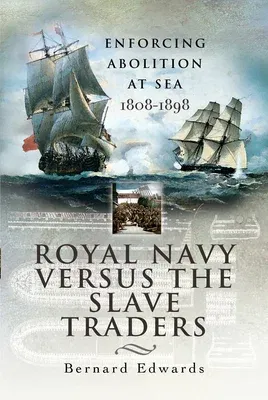Bernard Edwards
(Author)Royal Navy Versus the Slave Traders: Enforcing Abolition at Sea 1808-1898Paperback, 26 August 2021

Qty
1
Turbo
Ships in 2 - 3 days
In Stock
Free Delivery
Cash on Delivery
15 Days
Free Returns
Secure Checkout

Print Length
208 pages
Language
English
Publisher
Pen and Sword Maritime
Date Published
26 Aug 2021
ISBN-10
1399013505
ISBN-13
9781399013505
Description
Product Details
Author:
Book Format:
Paperback
Country of Origin:
GB
Date Published:
26 August 2021
Dimensions:
23.11 x
15.49 x
1.78 cm
ISBN-10:
1399013505
ISBN-13:
9781399013505
Language:
English
Pages:
208
Publisher:
Weight:
362.87 gm